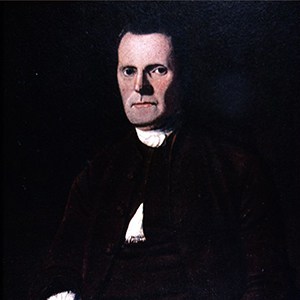Founding Father Roger Sherman hailed from Connecticut and is largely remembered for his role in the “Great Compromise” that saved the Constitutional Convention. He was one of only two delegates to sign all three of the nation’s founding documents — the Declaration of Independence, the Articles of Confederation, and the U.S. Constitution.
Early Career
Although he lacked any formal legal training, Sherman was admitted to the bar in 1754 and quickly ascended from a justice of the peace to an associate judge of the Connecticut Superior Court. He served in the Continental Congress from 1774-81 and the Confederation Congress from 1783-84. He was a member of the committees that drafted the Declaration of Independence as well as the Articles of Confederation.
Constitutional Convention
Sherman was also an active participant at the Constitutional Convention, attending nearly every session. Of his character, delegate William Pierce wrote:
That strange New England cant which runs through his public as well as his private speaking makes everything that is connected with him grotesque and laughable: and yet he deserves infinite praise -no Man has a better Heart or a clearer Head. If he cannot embellish, he can furnish thoughts that are wise and useful. He is an able politician, and extremely artful in accomplishing any particular object; it is remarked that he seldom fails.
Later Career
Sherman served on a number of the Convention’s key committees, including the First Committee of Representation and the Committee of Leftovers. He was the architect of the “Great Compromise” reached between the small and large states that provided for representation in the House of Representatives according to population and in the Senate by equal numbers for each state. The deal is credited with saving the Convention from collapse and providing a framework for advancing the debate.
After the Constitution was signed, Sherman wrote in support of its ratification. He also served as a delegate to Connecticut’s ratification convention. In the new government, Sherman continued to further his Federalist ideals while serving in the U.S. House of Representatives (1789-91) and Senate (1791-93).








